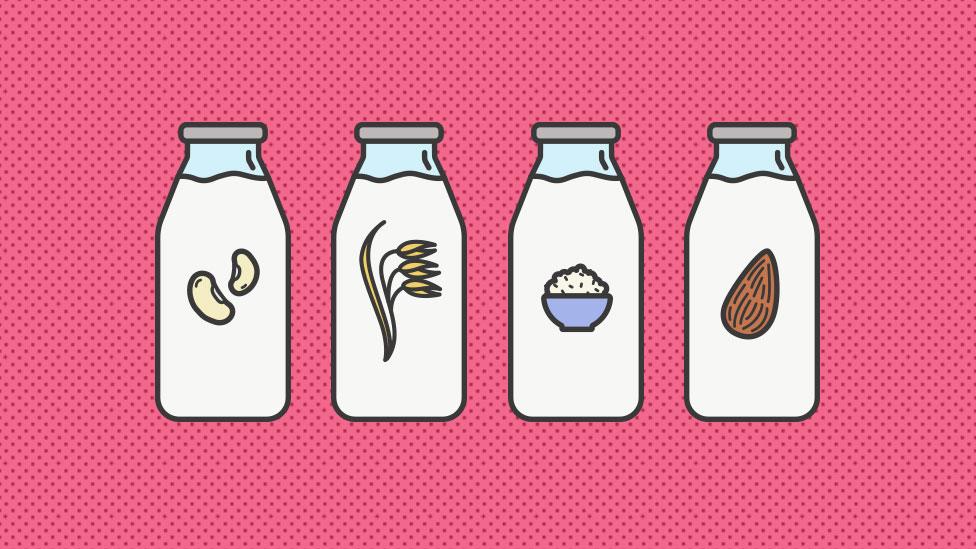Farmers hit out at meat production 'propaganda'
- Published
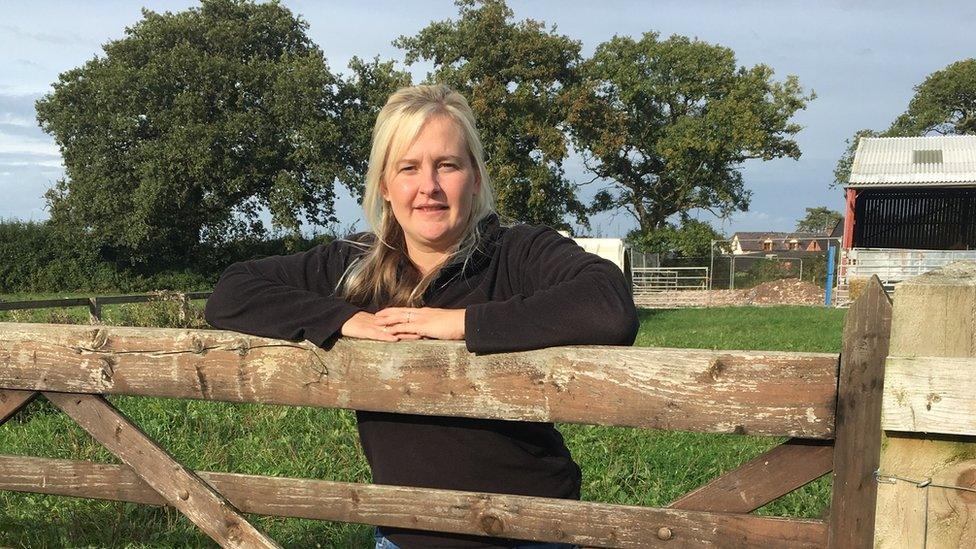
Cheryl Reeves rears about 200 calves a year at her farm near Bangor-on-Dee
Farmers have accused the media of unbalanced reporting on the impact eating meat has on the environment.
Meat Promotion Wales said online carbon calculators measuring the impact food choices often fail to make allowances for where the meat is sourced.
Wrexham beef farmer Cheryl Reeves said "propaganda" was damaging the industry.
But vegan chef and Dirty Sanchez star Matt Pritchard said: "People always say 'we're really looking after our cows' but you're still killing it."
Farming has faced criticism for damaging the environment via methane emissions from belching livestock, deforestation, water shortages and agricultural pollution.
In September, the National Farmers' Union of England and Wales (NFU) launched a plan to make British agriculture carbon neutral in 20 years with measures including applying farm chemicals more precisely using satellite technology, capturing methane from manure to heat people's homes and changing the diets of sheep and cattle so they do not belch so much methane.
Mrs Reeves, who rears about 200 calves a year at her farm near Bangor-on-Dee, said she was passionate about teaching the public about the agricultural industry and believed people could eat meat in a sustainable way.
"If you buy British you aren't impacting the environment as much as people think you are," she said.
"The media shows images of calves in crates and they portray negative propaganda of calves being snatched from their mothers.
"We as British farmers have the health and wellbeing of all our animals at the forefront of our daily routines and our standards are the highest across the globe.
"People need educating on our high standards. British farmers cannot sell their produce to supermarkets without being audited annually by a Red Tractor, external inspector, this is all to benefit the end consumer and to make sure we as farmers have the best interest of the animal's health and well-being."
She said her business worked with a dairy farmer based 400 metres away and her animals were taken to abattoirs within 30 miles (48km), with the closest being four miles (6km) away.
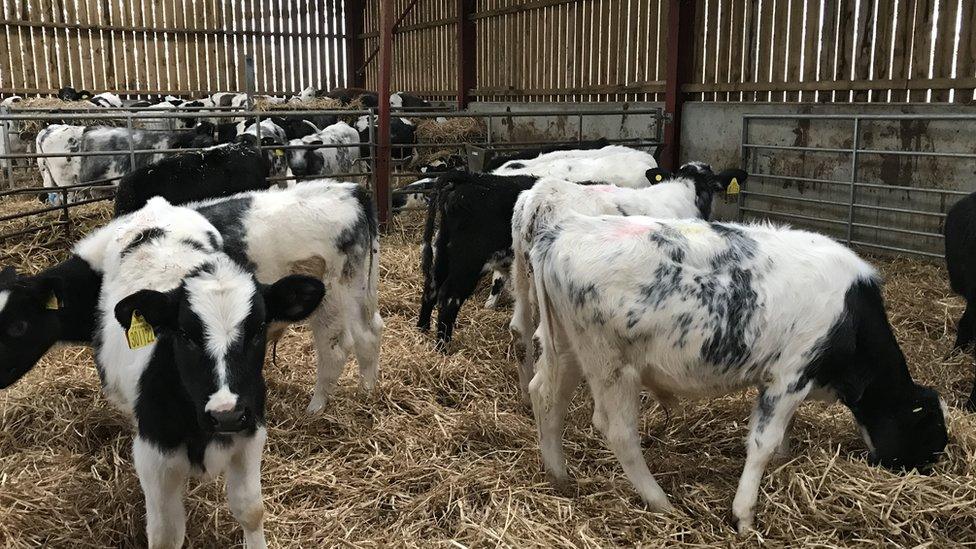
Cheryl Reeves has won industry awards for innovation on her farm
She does not think the recent interest in veganism will last: "I think it's a trend and it will pass. Supermarkets are promoting it because it's fashionable at the moment. They've jumped on the bandwagon.
"I have no problem with someone who doesn't want to eat meat, but I'm not so keen on people who say they're a vegan for fashionable reasons as they don't look at the bigger picture."
Pritchard, host of BBC vegan cookery show Dirty Vegan, said after getting a pet dog several years ago he found himself thinking: "Why am I eating meat when I love animals so much?
"I haven't eaten a dead animal for years - I'm perfectly fine, breathing, healthy. I went vegan for the animals. A lot do it for the environment, a lot do it for health, a lot for the animals - each to their own.
"If it stops the slaughter of animals I'm all for it. I'm not one to tell others what to do - I'll tell you why I don't eat meat and if you decide to listen to me, happy days".

Matt Pritchard, who made his name on MTV's Dirty Sanchez, decided to quit animal produce after getting a pet dog
He is indifferent on whether the media is biased when it comes to veganism: "Some are going to slate vegans and some will slate meat eaters, that's their decision."
But Meat Promotion Wales claims vegan diets receive far more coverage than their popularity warrants.
Chief executive Gwyn Howells said: "We respect the fact that people make their own dietary decisions for a range of personal reasons, however it's vital that the media doesn't distort the debate, and helps people to make informed choices.
"Welsh lamb and Welsh beef is overwhelmingly reared in non-intensive ways and fed on natural grass. It's a world away from systems abroad which often have a much more destructive environmental impact.
"In terms of water resources, for instance, the media and campaign groups sometimes say that it takes 15,000 litres to produce a kilo of beef, whereas research into sustainable grass-based production systems say the figure can be as little as 221 litres, which is lower than many plant-based foods."
- Published7 January 2019
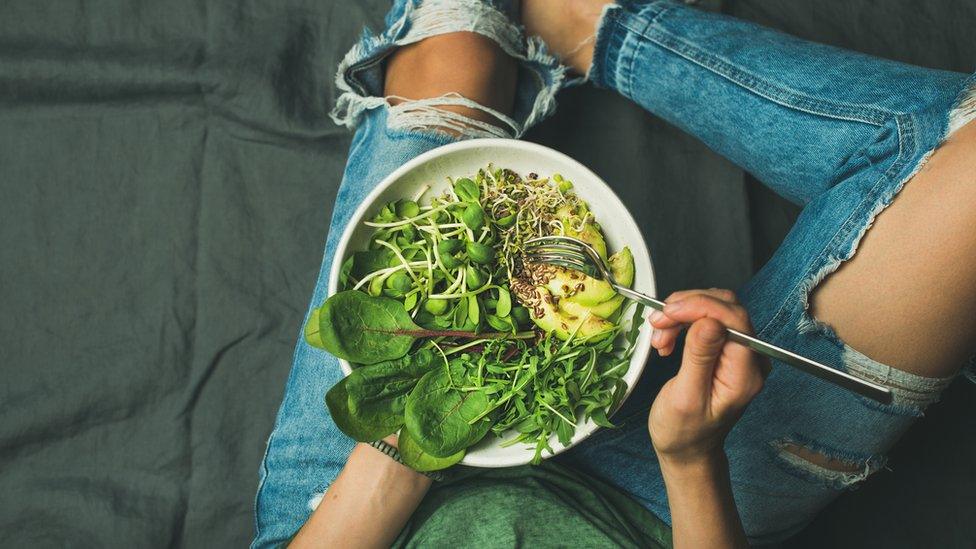
- Published27 November 2023
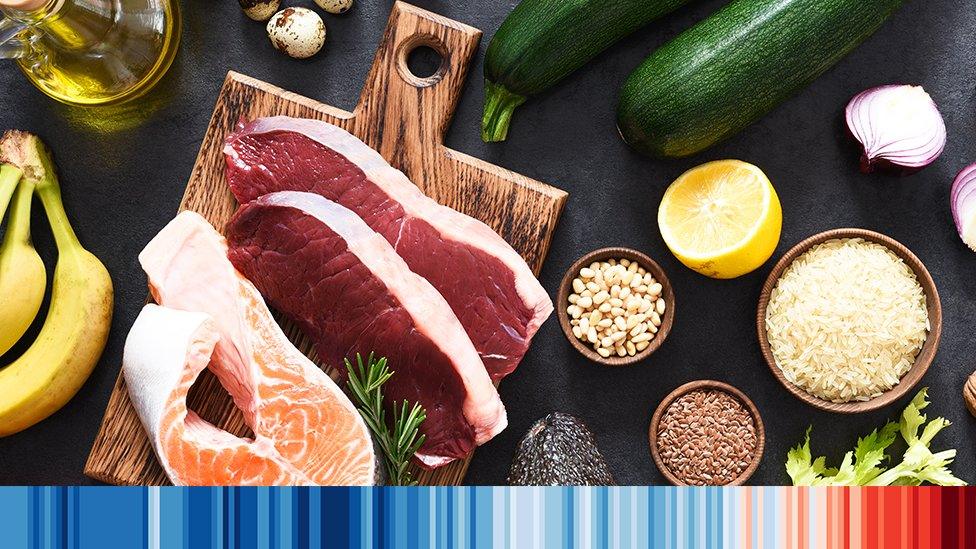
- Published22 February 2019
